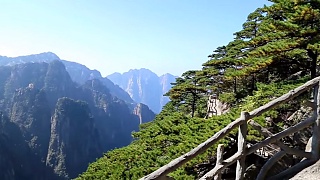Xi'an is one of China's oldest cities, the eastern end of the old Silk Road and home to the Terracotta Warriors that date from the Qin dynasty.
[640],shadow=true,start=,stop=Xi'an, located in the heart of Shaanxi Province in northwest China, is one of the oldest cities in China and served as the capital for numerous dynasties, including the Qin, Han, and Tang. Renowned for its rich history, cultural heritage, and iconic landmarks, Xi'an is a must-visit destination for tourists. Here's a guide for tourists visiting Xi'an:
Historical and Cultural Significance:
Ancient Capital: Xi'an served as the capital of China for over 13 dynasties and played a crucial role in shaping Chinese history and civilization. It was the starting point of the ancient Silk Road, facilitating trade and cultural exchange between China and the West.
Terracotta Army: One of Xi'an's most famous attractions is the Terracotta Army, a vast collection of life-sized terracotta sculptures depicting the armies of Qin Shi Huang, the first Emperor of China. Discovered in 1974, the Terracotta Army is a UNESCO World Heritage site and a symbol of China's rich cultural heritage.
Top Attractions:
Terracotta Army Museum: Located about 30 kilometers east of Xi'an, the Terracotta Army Museum is home to thousands of intricately crafted terracotta warriors, horses, and chariots. Visitors can explore the excavation pits, marvel at the craftsmanship, and learn about the history of the Qin Dynasty.
Ancient City Wall: Xi'an is renowned for its well-preserved ancient city wall, which dates back to the Ming Dynasty. Stretching over 13 kilometers in length, the wall offers panoramic views of the city and is a popular spot for walking, cycling, and sightseeing.
Muslim Quarter: Explore the vibrant Muslim Quarter, located near the Drum Tower and Great Mosque of Xi'an. This bustling neighborhood is known for its lively street markets, traditional Islamic architecture, and delicious street food, including lamb skewers, roujiamo (Chinese hamburger), and hand-pulled noodles.
Big Wild Goose Pagoda: Built during the Tang Dynasty, the Big Wild Goose Pagoda is a prominent Buddhist landmark in Xi'an. Visitors can climb the pagoda for panoramic views of the city or explore the surrounding temple complex and gardens.
Shaanxi History Museum: Discover the rich history and culture of Shaanxi Province at the Shaanxi History Museum. The museum houses a vast collection of artifacts, including ancient pottery, bronze ware, jade, and Tang Dynasty murals, providing insights into the region's heritage.
Practical Tips:
Transportation: Getting around Xi'an is convenient with its extensive public transportation system, including buses, taxis, and the Xi'an Metro. Bicycle rentals are also available for exploring the city at a leisurely pace.
Weather: Xi'an has a continental climate with hot summers and cold winters. The best time to visit is during spring (April to May) and autumn (September to October) when the weather is pleasant and comfortable.
Language: Mandarin Chinese is the official language spoken in Xi'an, although English may not be widely spoken, especially in more remote areas. It's helpful to learn some basic phrases or carry a phrasebook or translation app.
Currency: The currency used in China is the Chinese Yuan (CNY). Credit cards are accepted at most hotels, restaurants, and shops in urban areas, but it's advisable to carry cash for small purchases and transactions.
Xi'an offers a fascinating blend of ancient history, cultural heritage, and modern urban life, making it an enchanting destination for tourists seeking to explore the wonders of ancient China. Whether marveling at the Terracotta Army, walking along the ancient city wall, or sampling delicious street food in the Muslim Quarter, Xi'an has something to offer for every traveler.

 Some scenes from Xi’An, Shaanxi province
Some scenes from Xi’An, Shaanxi province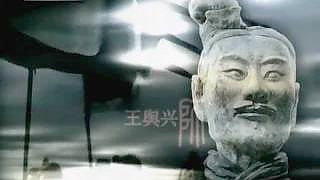
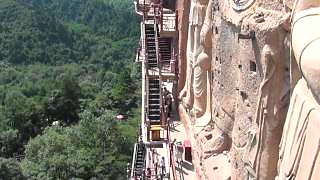

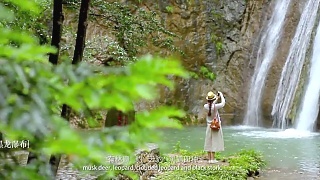


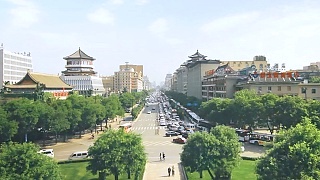
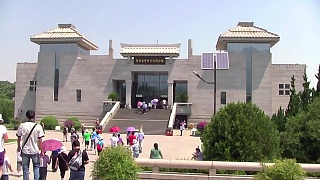

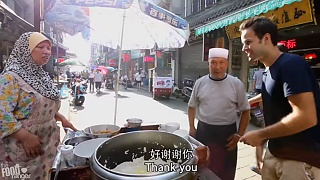
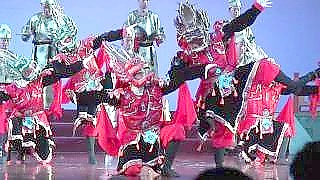


![With Time Walker ... `Shenzhen Library North is one of the first major cultural facilities of the new era built and completed in Shenzhen. It has a construction area of about 72,000 square meters, 6 floors above ground and 3 floors underground. It is designed to hold 8 million books and provide 2,500 seats. Its total investment is about 1. 2 billion yuan. The library is positioned as a large-scale comprehensive and intelligent library integrating document collection, national reading, social education, ideological exchange, cultural inheritance and creative creation. It not only has the functions of a public library, but also serves as the city`s document adjustment library and Shenzhen`s `City of Libraries` joint editing center, network data center and document allocation center. The library has many special libraries and interactive learning spaces, and has the largest underground intelligent three-dimensional library in the country, equipped with advanced facilities such as large-scale rapid sorting system, vertical track access system and electronic seeding wall system. As of July 2024, Shenzhen Library North was officially opened on December 28, 2023. After the opening, 6,000 reservations will be available in the public service area and 2,000 reservations will be available in the children`s area every day. Readers can submit a reservation for admission through the Shenzhen Library WeChat official account one day in advance, and present the reservation voucher to enter the venue after arriving at the library. The specific opening hours are from Tuesday to Sunday 9:00-21:00. The housekeeping is done on Mondays. The 1F Reading Hall is open from Monday to Sunday 7:00-23:00. Legal holidays will be notified separately. Location: Located at the intersection of Tenglong Road and Zhongmei Road in Longhua District. Transportation: • Subway: Take Line 4 or Line 6 to Hongshan Station and walk to the library in a few minutes. • Bus: There are many bus lines stopping nearby, such as [specify the specific bus number and stop]. Architectural Features: The exterior adopts a unique design similar to white fish scales, creating a visually stunning effect. The interior space is spacious, with a large atrium and elegant book walls. Opening hours: Open from 9:00 to 21:00 from Tuesday to Sunday. The 1F reading room is open from 7:00 to 23:00. Collection Features: The collection is rich and covers various fields and genres. There are rare and precious books, as well as newly published books to meet different interests. Exhibition Features: Regularly hold a variety of exhibitions, including art exhibitions, historical displays and cultural exhibitions, providing a rich visual and intellectual experience. When you visit: • Remember to make an appointment in advance through the Shenzhen Library WeChat official account. • Take your time to explore each floor and enjoy the peaceful reading atmosphere. ` The awesome ShenZhen Library North Branch](https://img.youtube.com/vi/4jP97cIHKUc/mqdefault.jpg)



